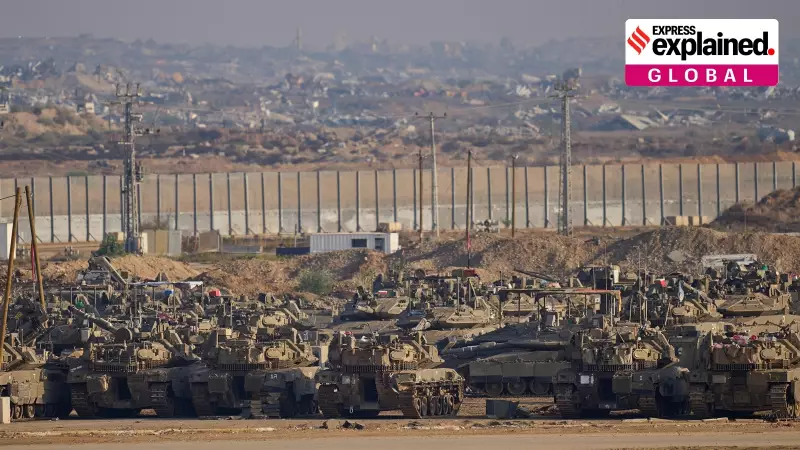
The United Nations Security Council has given its official approval to US President Donald Trump's comprehensive peace proposal for Gaza, marking a significant development in the ongoing conflict resolution efforts. The 20-point plan received the UN's endorsement on Monday, November 17, 2025, despite reservations from several quarters and abstentions from key global powers.
The resolution passed amid what analysts describe as the international community's growing desperation to achieve some tangible progress in Gaza, which has been devastated by prolonged conflict. While the plan contains numerous vague elements, it notably includes the possibility of Palestinian statehood, a crucial concession that helped secure broader support.
Three-Pronged Governance Structure for Gaza
The UN-adopted plan establishes three distinct authorities to oversee Gaza's transition and reconstruction. First among these is the Board of Peace, which will be chaired by President Trump himself. This board will have overarching responsibility for supervising Gaza's economic resurrection and reconstruction efforts.
Second, the plan creates an International Stabilization Force (ISF) that Trump's proposal describes as "the long-term internal security solution" for the region. According to the document, this force will be critical for "preventing munitions from entering Gaza and facilitating the rapid and secure flow of goods to rebuild and revitalize Gaza."
The third pillar involves establishing a "technocratic, apolitical Palestinian committee" that will handle "temporary transitional governance" of Gaza. This body will be responsible for the day-to-day administration of public services and municipal functions during the transition period.
Significant Challenges and Opposition
Despite the UN endorsement, the plan faces substantial obstacles from the very parties it aims to bring to the table. Both Israel and Hamas have already rejected crucial elements of the proposal, raising questions about its practical implementation.
Israel's far-right factions have expressed strong opposition to the mention of Palestinian statehood, with Prime Minister Benjamin Netanyahu stating clearly on Sunday that Israel remains opposed to a Palestinian state. This position directly contradicts one of the plan's fundamental components.
Hamas, meanwhile, issued a statement on Telegram following the resolution's passage, declaring that the plan "imposes an international guardianship mechanism on the Gaza Strip, which our people and their factions reject." The group further argued that assigning the international force with tasks including "disarming the resistance" strips it of neutrality and makes it "a party to the conflict in favour of the occupation."
Additional uncertainties surround the composition of all three proposed authorities. Beyond Trump's leadership of the Board of Peace, no members have been announced for any of the bodies. Trump indicated on Truth Social that "the members of the Board, and many more exciting announcements, will be made in the coming weeks."
Potential Silver Linings and International Dynamics
The UN resolution does represent measurable progress in several important respects. Most significantly, it contains the first international, UN-passed recognition of "Palestinian self-determination", however vaguely worded. This inclusion was essential for securing support from Arab and Muslim states, as well as the Palestinian Authority.
The endorsement from these parties also influenced Russia and China's decision to abstain rather than exercise their veto power, despite their criticisms of the plan. Vasily Nebenzya, Russia's ambassador to the UN, expressed concerns that "the council is giving its blessing to a US initiative on the basis of Washington's promises, giving complete control over the Gaza Strip to the Board of Peace and the ISF, the modalities of which we know nothing about so far."
Financial backing for Gaza's reconstruction will come from a World Bank-supported trust fund, providing a legitimate mechanism for channeling international aid. The involvement of multiple countries in the ISF is expected to maintain international scrutiny on Gaza, potentially helping prevent the region from descending into extreme violence again.
Perhaps the most promising aspect is Trump's personal stake in the plan's success. As the architect and chair of the Board of Peace, the US President has a vested interest in demonstrating progress. Given his unique relationship with Netanyahu, Trump may be the only figure capable of influencing Israeli cooperation with certain aspects of the plan.
The coming weeks will be critical as the specific details of implementation emerge and the international community watches to see if this ambitious plan can overcome the substantial obstacles that have derailed previous peace initiatives in the region.





